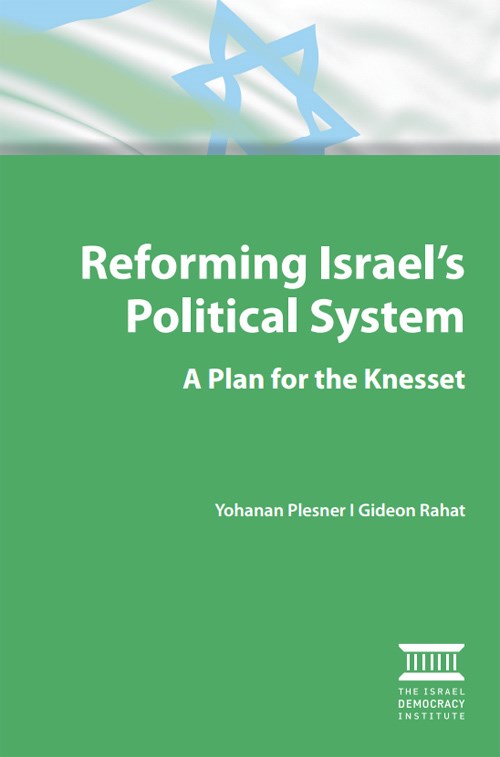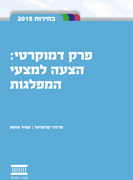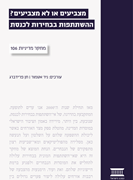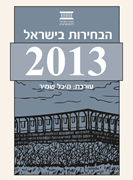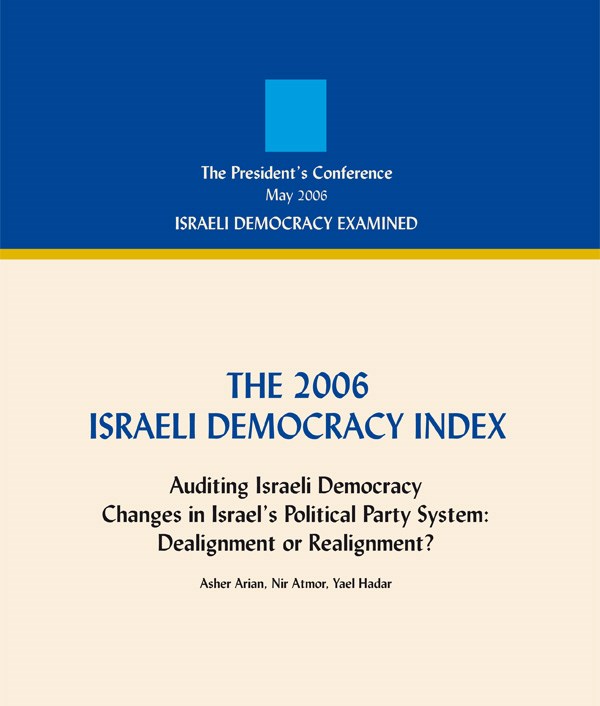

Publications Regarding Israeli political system
Articles

The Appointment of the Next Shin Bet Chief and The Advisory Committee on Senior Civil Service Appointments
Written By: Dr. Assaf Shapira
When and why was the Advisory Committee on Senior Civil Service Appointments established, what are its powers, and which appointments is it supposed to review? Everything you need to know about the "Grunis Committee" that is examining the candidacy of Major General Zini for head of the Shin Bet.

Some No Longer Believe the Prime Minister Can Violate the Rule of Law - He Is the Law
Written By: Adv. Anat Thon Ashkenazy
When loyalty to the Prime Minister is seen as loyalty to the law itself, Israel risks replacing democracy with rule by decree—undermining the very foundations of the rule of law.

Exploiting the Public's Distraction to Pursue the Judicial Overhaul
Written By: Dr. Guy Lurie
Amidst the return to fighting in Gaza, the Minister of Justice is taking advantage of the public's eye being off the ball to hastily overhaul Israel's judicial system.

Four Comments on the Decision to Dismiss the Head of the Shin Bet
Written By: Prof. Suzie Navot
On March 16, 2025, Prime Minister Netanyahu announced his intention to bring the dismissal of Ronen Bar, the head of the Israeli Security Agency (Shin Bet), Israel's internal security service, to a vote of the full cabinet. Though not a perfect comparison, the Shin Bet is often seen as comparable to the FBI in the US.

Israel and the Freedom in the World Report: A Pattern of Continuing Decline
Written By: Dr. Assaf Shapira, Prof. Ofer Kenig
In just over a decade, Israel’s score in the report published by Freedom House has fallen by 8 points, a decline that now puts it alongside countries such as Brazil and Namibia.

Israel’s Renewed Judicial Overhaul
Written By: Prof. Yuval Shany, Prof. Amichai Cohen
The battle over Israel’s legal system has resumed, threatening judicial independence.

Ministers Levin and Saar's Proposed Changes to the Judicial Selection Committee
Written By: Dr. Guy Lurie
Justice Minister Yariv Levin and Foreign Minister Gideon Sa’ar presented their proposed changes to the composition of the Judicial Selection Committee (JSC) as a compromise aimed at achieving a gradual change in the judicial selection process, but many constitutional experts worry that the plan will have dire consequences resulting in the politicization of Israel’s judicial selection process.

Minister of Defense Gallant is Fired: A Review of the Dismissal of Israeli Cabinet Ministers
Written By: Prof. Ofer Kenig
At first glance, the dismissal of Minister of Defense Yoav Gallant is not unprecedented – prime ministers hold authority to fire ministers, and Prime Minister Netanyahu has done so in the past. However, the circumstances surrounding the current dismissal are especially intense.

Could Sderot Have the Same Standing as Tel Aviv? Perhaps If We Reform the Electoral System
Written By: Dr. Assaf Shapira, Prof. Gideon Rahat
Israel is the only OECD member that has neither regional elections nor a personal element in the electoral system. This is not simply a technical issue but has far-reaching implications relating to the quality of representation and the obligation elected officials have toward their voters.
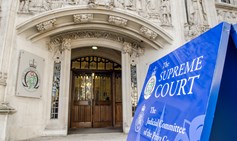
Appointment of Judges to High Courts in Democratic Countries: A Comparative Study
Written By: Prof. Amichai Cohen, Dr. Guy Lurie
The research examined 42 countries included all the OECD member states along with other leading democratic countries.
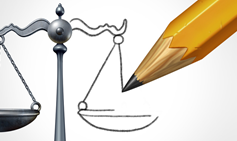
Completing Israel’s Constitutional Process
IDI is currently in the process of composing a revised proposal for a full constitutional arrangement for the State of Israel as it marks 75 years of independence.

Disqualification of Knesset Lists and Candidates: Q&A
Written By: Prof. Yuval Shany, Dr. Amir Fuchs
Disqualifying candidates and lists for the Knesset violates one of the most fundamental democratic rights, the right to vote and to be elected. Therefore, it must be done with the utmost care, judgment and objectivity. Who can reject candidates and lists for the Knesset, and on what is the criteria? IDI experts answer these questions.
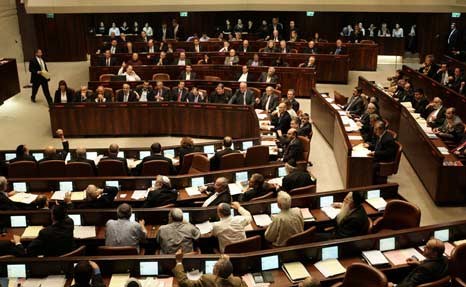
The Many Ways to Dissolve the Knesset 2022
Written By: Dr. Dana Blander
The unlikely coalition that survived thanks to the one vote has lost the parliamentary majority. Does this mean that the Knesset will disperse and new elections will be held? Dr. Dana Blander explains the different ways in which the Knesset can be dissolved and discusses the relationship between these mechanisms and government stability in a parliamentary system.
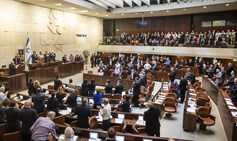
What’s Wrong with Israel’s Political System?
Written By: Prof. Yuval Shany
Four elections in two years failed to produce decisive results - what's wrong with Israel's political system and is there is any way out of its current political stalemate?

Without Trust, There Can Be No Compliance
Written By: Dr. Dana Blander
The Israeli public deserves leadership that isn't weighed down by a track record of incoherent instructions, selective enforcement, and politicians’ own failure to comply
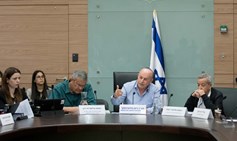
Who Will Investigate the Coronavirus Crisis?
Written By: Dr. Dana Blander
There have been calls to investigate the government’s handling of the coronavirus crisis – but who should do the investigating?
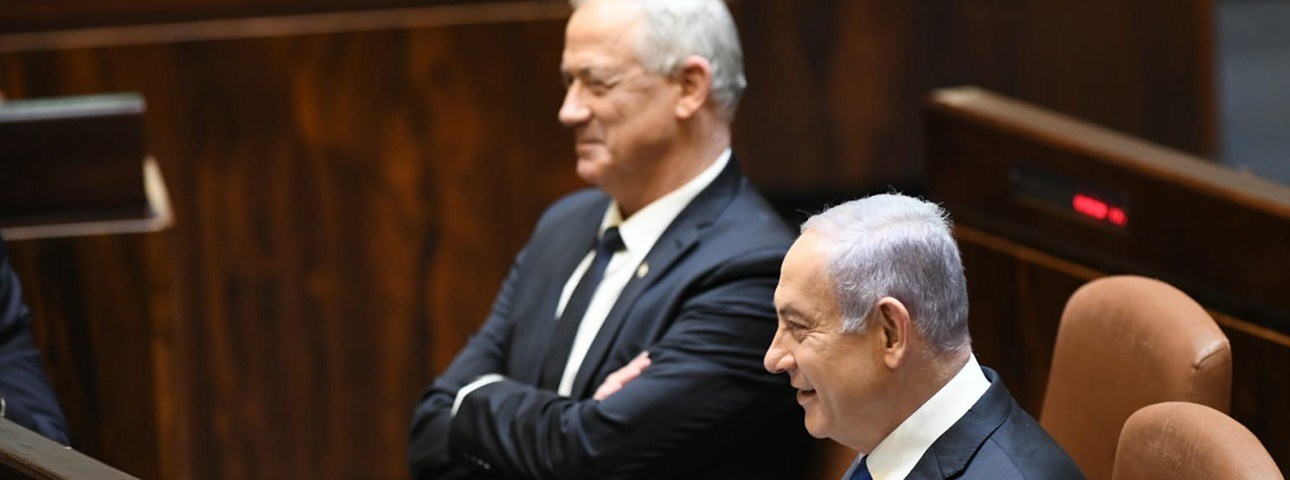
Israel’s Cease-Fire Government Should Promote Healing, Not Division
Written By: Yohanan Plesner
Netanyahu and Gantz could use their unity government to put in place a 'democratic ceasefire' and speed Israel’s economic recovery rather than entrenching political deadlock.
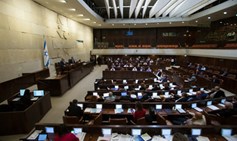
IDI Supports Enacting the “Norwegian Law”
Knesset members should be available for parliamentary legislation and oversight

Israel’s 35th Government: A Portrait
Written By: Prof. Ofer Kenig
After 18 months of political deadlock, Israel’s 35th government was sworn in - and in many ways it's quite unique.
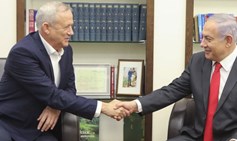
No Justification Whatsoever
Written By: Prof. Ofer Kenig
The establishment of the Netanyahu-Gantz government required many compromises.That being said, there is absolutely no way to justify the extravagant size of the new government
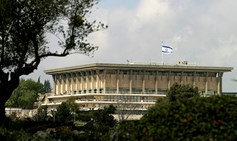
Don’t Call It a Comeback
Written By: Dr. Shany Mor
In mature democracies, parliaments are regaining their relevance in the coronavirus era.
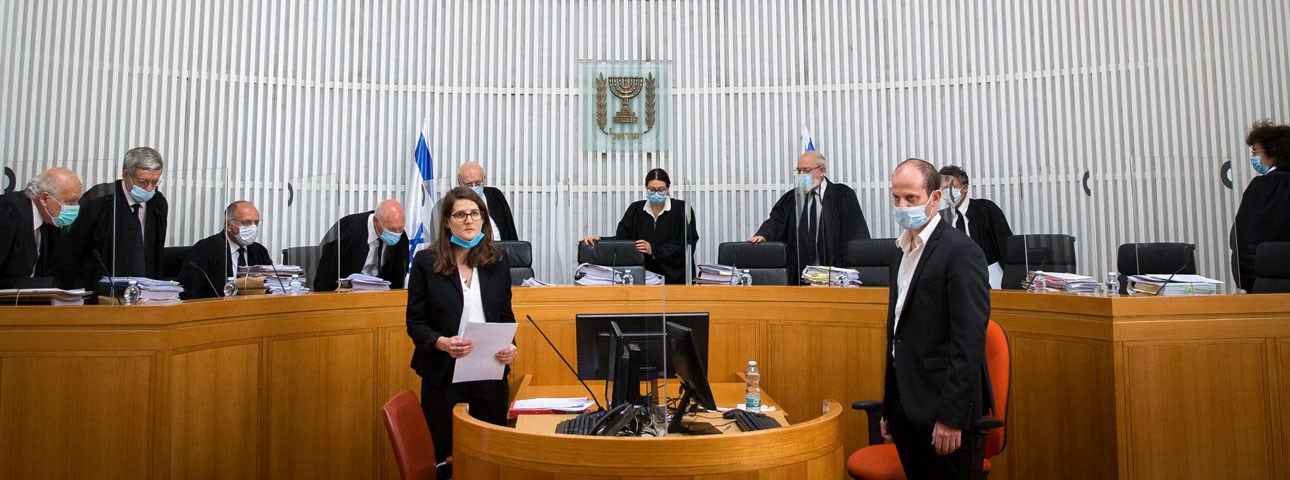
Sanity Prevails: 11 to 0
Written By: Prof. Yedidia Z. Stern
Israel's High Court handed down a unanimous decision - and the public saw for themselves that there was no devious plot to undermine the separation of powers.

Over Half of Jewish Israelis Support Annexation
Written By: Prof. Tamar Hermann, Dr. Or Anabi
The Israeli Voice Index for April 2020, found that 52% of Jewish Israelis support Prime Minister Benjamin Netanyahu's stated policy of extending Israeli sovereignty in the West Bank, however only 32% believes Israel will move forward with this in the coming year.
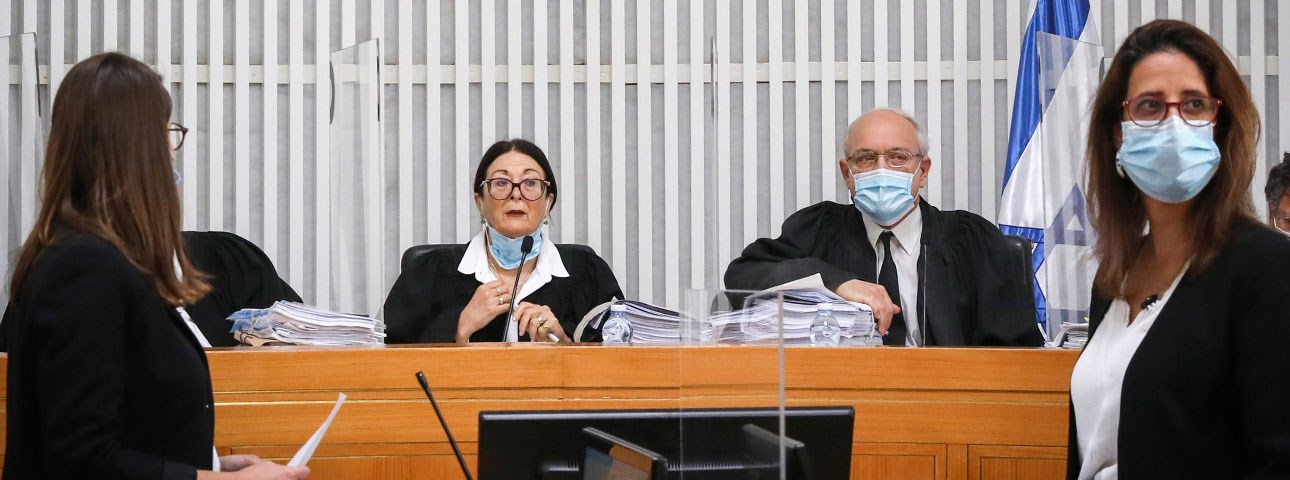
Moment of Truth for Judicial Restraint
Written By: Prof. Yedidia Z. Stern
Many Israelis attribute a left-wing bias to the Supreme Court and accuse it of extreme activism, but the hearings that were broadcast live highlight the vast gulf between the Court's image and the reality

The Alternative Government
Written By: Dr. Amir Fuchs, Dr. Assaf Shapira
IDI researchers testified before the Knesset's Special Committee: Personal and retroactive changes should not be made to legislation regarding the Prime Minister's legal status

Two Hedgehogs and a Hydra
Written By: Prof. Yedidia Z. Stern
This is a familiar plague: rewriting the game rules of democracy to suit changing political circumstances has become the norm in Israel.

Will the Coronavirus Defeat the Populism Epidemic?
Written By: Dr. Dana Blander
The coronavirus is an international threat but will it stem the growth of populism around the world?

A Jumbo-Size Government? Now? Really?
Written By: Prof. Ofer Kenig
Reports of a 30 to 34 minister cabinet in the works beg for a public outcry: Costly, inefficient and divisive is not what we need today.

What Should we be Studying in Times of Corona?
Written By: Dr. Tammy Hoffman
We should take advantage of the opportunity that the coronavirus presents to improve our children's education.

Don’t Manage a Crisis under Threat of Investigation
Written By: Dr. Shuki Friedman
Calls for the establishment of a state commission of inquiry the day after the corona, in the midst of the crisis, can lead decision-makers to make decisions based on wrong considerations
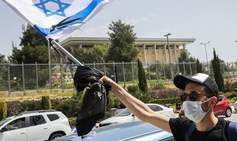
Politics in a Time of Corona
Written By: Yair Sheleg
Israel finds itself in an unprecedented political situation at a time it must face a worldwide pandemic.
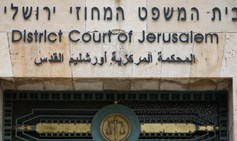
Prime Minister on Trial - Explainer
Written By: Dr. Amir Fuchs
Prime Minister Netanyahu’s trial in the Jerusalem District Court is to begin on March 17th. Dr. Amir Fuchs, a researcher at the Israel Democracy Institute provides responses to key questions as to what this process will look like.
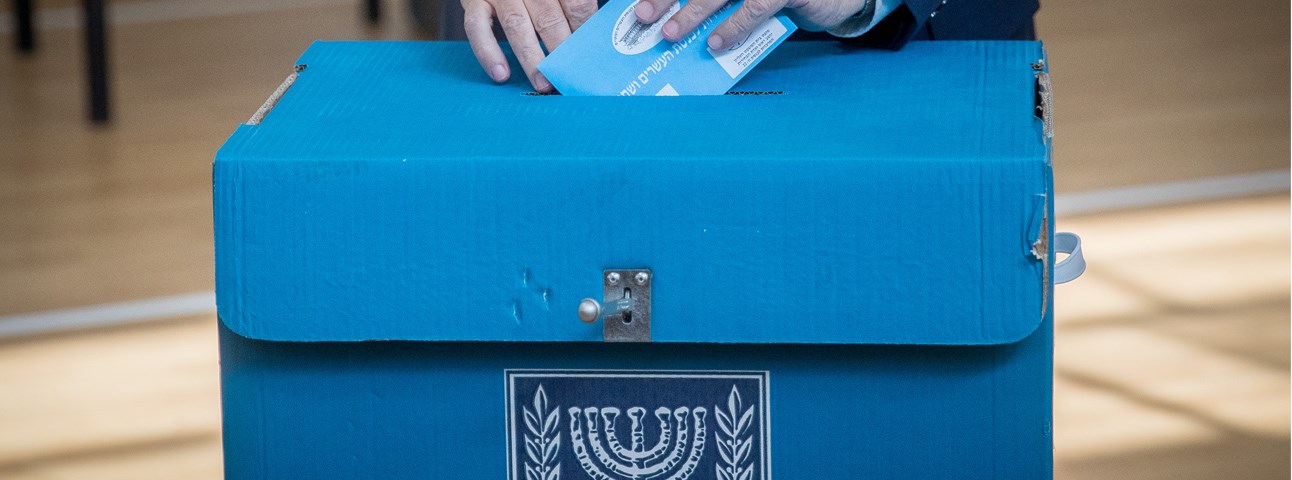
5 days to the Election: Jewish Israelis are Paying Less Attention
Written By: Prof. Tamar Hermann, Dr. Or Anabi
5 days to the Elections: Jewish Israelis are Paying Less Attention. A Majority of Arab Israelis are Following with the Same or Increased Interest. 30% of the Public Predicts a Fourth Election.

Getting Stay-at-Home Potential Voters to the Polls for Israeli Elections
Written By: Dr. Assaf Shapira, Dr. Ofer Bernstein
Rather than “packaging” voting as a political, civic and moral obligation, we should try instead to get these potential voters to think about the personal benefits to be gained by going to the polls.

Third Time's a Charm?
Written By: Yohanan Plesner
With two weeks to go, Yohanan Plesner presents the key issues to look out for in Israel's unprecedented third election and what – if anything – will determine if a stable government will finally be formed.
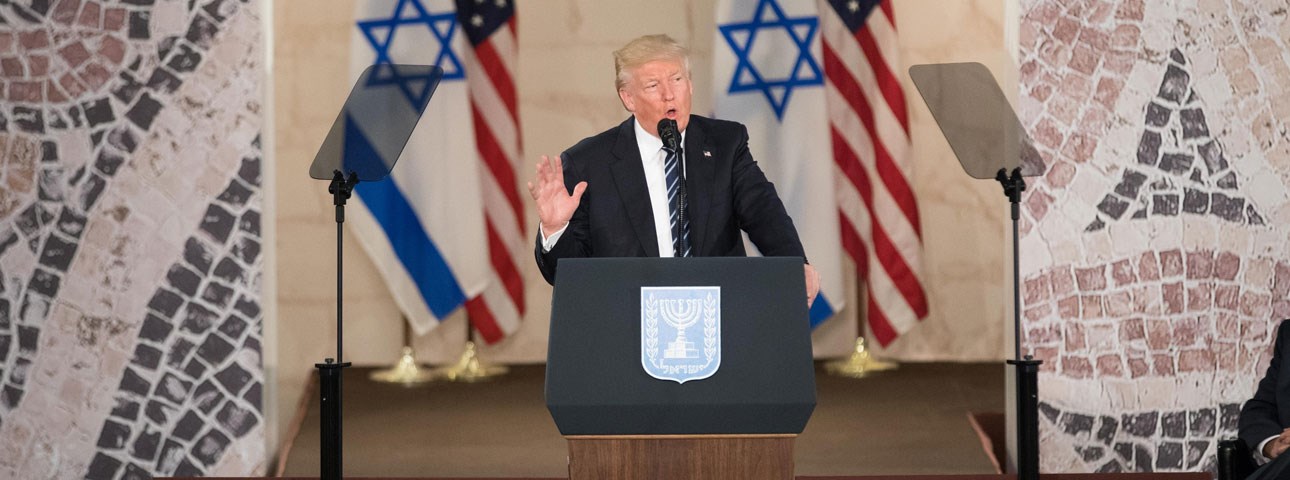
Can Israel Recognize a Palestinian State?
The January Israeli Voice Index reveals that more Israelis support Israeli recognition of a Palestinian state than those who oppose it.

Israelis Believe Netanyahu's Investigations Will have the Greatest Impact on the Vote
Written By: Prof. Tamar Hermann, Dr. Or Anabi
January's Israeli Voice Index found 32% of Israelis believe Netanyahu's investigations will be the issue with the greatest impact on voters in the upcoming Knesset elections.

Can the “Deal of the Century” be Implemented Under a Transitional Government?
Written By: Prof. Amichai Cohen, Dr. Amir Fuchs
What are the legal barriers standing in the way of the current government implementing the U.S.'s “Deal of the Century” peace plan?

Where Have the Parties Gone?
Written By: Yohanan Plesner
Political parties no longer fulfill the goals for which they were intended, rather they have become technical structures that are focused on the ranking of the candidates on their Knesset lists.

Rabbis in Politics—A Disaster for Both
Written By: Dr. Shuki Friedman
Rabbis are not necessarily any better or worse than other politicians.
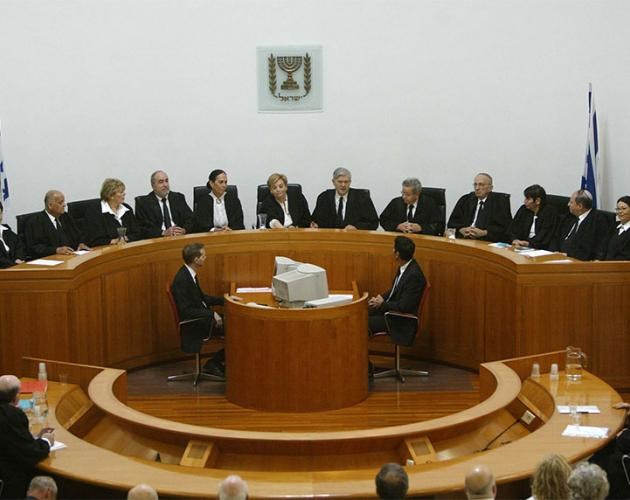
A Vote of Confidence in the Rule of Law
Written By: Prof. Yedidia Z. Stern
Regardless of the decision regardin PM Netanyahu's request for immunity - the debate will revolve around the more important question: the status of the rule of law in Israel
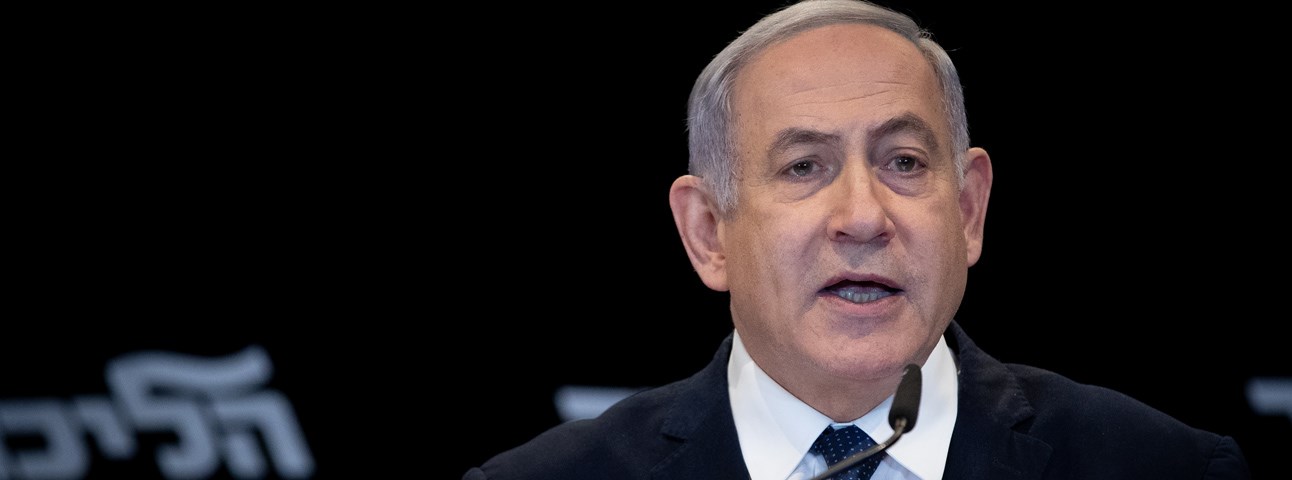
Only the Voters can Put a Prime Minister Out to Pasture
Written By: Prof. Yedidia Z. Stern
After lengthy deliberation, the attorney-general, who holds the statutory authority to file charges against him, decided to indict Netanyahu.

Populism and its Implications for Democracies: Summary
International Experts Gather at IDI to Debate Populism and its Implications for Democracies as Israeli Electoral Deadlock Continues

Justice in the Courtroom, Not in the Streets
Written By: Prof. Yedidia Z. Stern
Our level-headed, intelligent, rational prime minister has lost his good judgment and is inciting against some of the most important institutions of state

After Indictment - 59% of Israelis Think Netanyahu Should Step Aside
Written By: Prof. Tamar Hermann, Dr. Or Anabi
The November 2019 Israeli Voice Index finds that 35% of Israelis think PM Netanyahu should resign and stand trial – of the Likud voters - 37% agree

Some are Guilty, but All Are Responsible
Written By: Dr. Nasreen Haddad Haj-Yahya
When the PM smeared Arab Knesset members, those 'allies' who urged us to go and vote had a responsibility to protest. They didn't.

Can a Minority Government End the Deadlock in Israel?
Written By: Dr. Assaf Shapira
Assaf Shapira argues that if the choice is between a minority government and another round of elections, the former is the better option.

Majority of Israelis Support their Parties Joining a Blue and White Coalition
Written By: Prof. Tamar Hermann, Dr. Or Anabi
October 2019 Israeli Voice Index revealed a decline in Israelis’ assessment of President Trump’s commitment to Israel’s security. The survey also found that 62% of Israelis support the parties they voted for in the last elections joining a Blue and White led coalition.

Despite The Election Tumult, Israeli Democracy Dodged A Bullet
Written By: Yohanan Plesner
Coalition negotiations continue and Israel does not yet have a government - but one thing is certain - Israeli democracy dodged a bullet.

A Pyrrhic Victory
Written By: Dr. Gilad Malach
The results speak for themselves. Shas, headed by Arye Deri, registered a resounding success with traditional voters. But is this a long term victory?

Democracy: Rule of the People?
Written By: Prof. Yuval Shany
The recent wave of populism forces us to sharpen our understanding of the literal meaning of 'democracy' and 'the rule of the people' as well as the accepted definition of liberal democracy
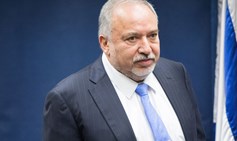
Two Weeks to Election Day: IDI Poll Reveals Jewish Israelis are in Favor of a Unity Government
Written By: Prof. Tamar Hermann, Dr. Or Anabi
The August 2019 Israeli Voice Index found that Jewish Israelis show a strong preference for a unity government while Arab Israelis prefer a center-left wing government led by Gantz and that over the past five months there has been a steady decline in the public’s optimism about the future of Israel’s democracy and security

Perceptions on Citizenship among Ultra-Orthodox Israelis
Written By: Dr. Asaf Malchi
Despite the fact that the State of Israel and its central institutions are essentially secular and reflect a Zionist self-image, according to data from the 2016 Democracy Index only two-thirds (64%) of ultra-Orthodox Israelis report having a strong sense of belonging to the state.
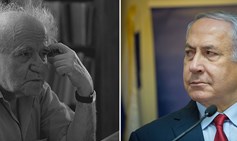
BB > BG
Written By: Prof. Ofer Kenig
On July 19th 2019, Netanyahu’s total days in office as Israel’s prime minister equals Ben-Gurion’s and on July 20th he will hold the title of the Israeli prime minister with the longest term in office. This also will make him the third most 'veteran' leader among the OECD countries.

The Absurdity of Campaign Financing in Israel
Written By: Dr. Assaf Shapira
Why should parties be allowed to use state funding for ongoing expenses to cover the debts accrued during political campaigns?

Toward Tyranny of the Majority
Written By: Dr. Amir Fuchs
Granting the government additional power, which will enable overriding Basic Laws in simple legislation must not be allowed, lest the defense of basic civil rights in Israel are compromised

Has The Era of the Primaries Come to an End?
Written By: Prof. Ofer Kenig
Democracy is at risk when the responsiveness between the public and its elected representatives is severed. Without accountability, political extremism and populism will become more prevalent.
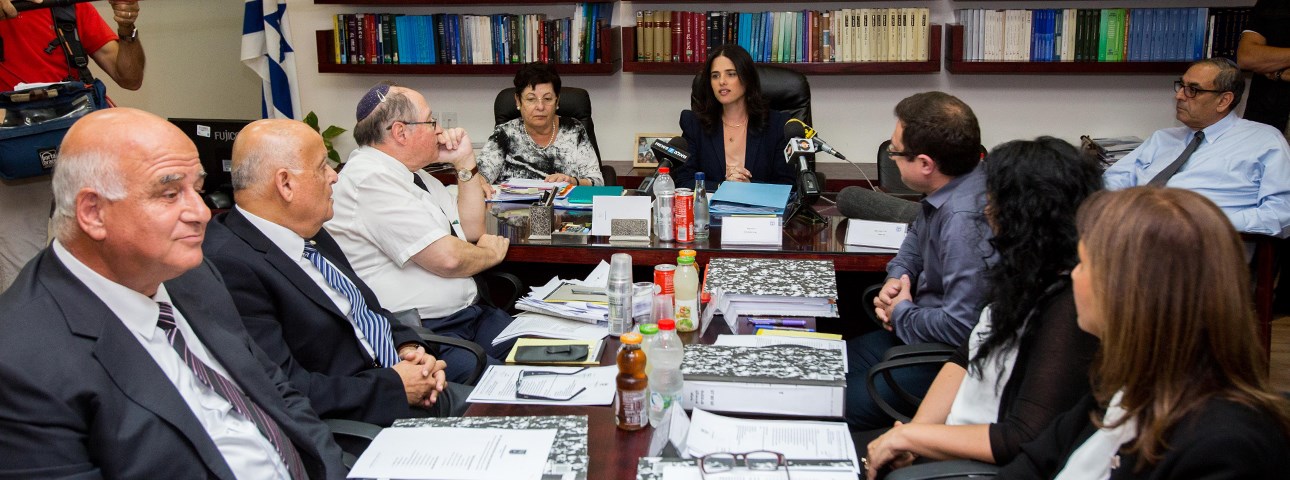
A Lethal Virus
Written By: Prof. Yedidia Z. Stern
"If indeed a member of the Judicial Appointments Committee was swayed by bribes, this constitutes the deepest possible subversion of the system and its legitimacy".
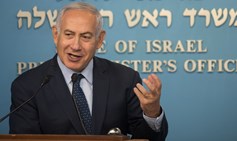
The Illusion of Political Stability
Written By: Prof. Ofer Kenig
Despite a solid decade with the same prime minister, other cabinet posts have switched hands at alarming rates.
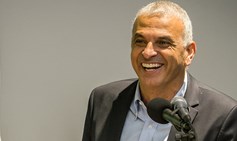
The Constitutional Tug of War in the Outgoing Coalition
Written By: Dr. Amir Fuchs
The 20th Knesset was the most injurious of all with regard to democratic values, freedom of expression, gatekeeping and, above all, minority rights. In the next government we can only hope that someone will champion liberal center-right values to continue to protect our democracy.
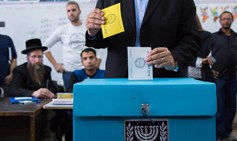
Israeli Politics Fractured: The System Needs Fixing
Written By: Prof. Gideon Rahat
It is commonly accepted that in order to defeat Netanyahu, the political parties in the center and on the Left must unite and present a single and clear alternative. However, under the current system, this claim is simply not true.

Keep Politics Out of Corruption!
Written By: Prof. Yuval Feldman
Supporters of this government show increasing tolerance for graft, and this is a red flag for the rule of law in Israel.

Beyond the Veil of Ignorance
Written By: Prof. Yedidia Z. Stern
One fact is clear: the moment the attorney-general announces his decision, half of the public will reject it, to the point of accusing him of serving political interests and not really seeking the truth.
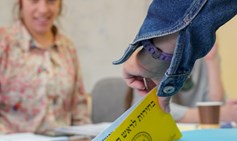
Local Government and Local Elections: Time to Move Away from Centralized Thinking
Written By: Prof. Gideon Rahat
Israel’s system of local elections has been in place since the 1970s - but is it optimal? Prof. Gideon Rahat proposes reform to enhance the compatibility of the system to the characteristics and needs of different localities.
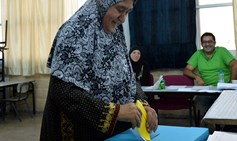
Why Local Elections Matter
Written By: Yohanan Plesner
"While Israeli national politics get most of the coverage, it is the local level that in many cases has the greatest impact on Israeli lives." Read Yohanan Plesner's op-ed on the upcoming municipal elections and why electoral reform is required, both on the local and national level.

Is It a Very Scary Time for Young Men?
Written By: Prof. Tamar Hermann, Prof. Ephraim Yaar
The monthly Peace Index of the Israel Democracy Institute and Tel Aviv University finds that: 44% of Jewish and Arab Israelis agree with President Trump’s statement that “It’s a very scary time for young men” – the percentage among men who agreed was significantly higher than that among women.

Meet the Next Generation of IDI Leaders
Written By: Rachel Cohen, Adv. Alona Vinograd, Dr. Nasreen Haddad Haj-Yahya, Daphna Aviram-Nitzan, Dr. Gilad Malach
Guaranteeing an independent Supreme Court. Integrating the Ultra-Orthodox into the IDF. Boosting participation of Arab women in the workforce. Improving the ease of doing business in Israel. These are some of the challenges facing IDI’s new cadre of program and center directors.

Strengthening Jewish Peoplehood In The Diaspora — But Not In Israel
Written By: Yohanan Plesner
In the bill’s final wording, the state only commits itself to act within the Diaspora to strengthen the ties of Jewish peoplehood – as if actions taken inside the Jewish state, like the reneged-upon Western Wall compromise, have no bearing on the rest of the Jewish world.

A Misconstrued Perception of Who the "Bad Guys" Are
Written By: Prof. Yuval Feldman
Behavioral ethics, a growing area within psychology and management literature, demonstrates that an individual’s unethical behavior is demonstrated through self-deception.

On Political Appointments of Legal Advisers in Government Ministries
Written By: Yohanan Plesner , Prof. Yuval Shany, Prof. Yedidia Z. Stern
The Israel Democracy Institute ahead of the Knesset Constitution Committee debate on political appointments of legal advisers in government ministries: "A blow to the civil service ethos; an opening for potential corruption, forsakes public interest".

Israelis Support Moving the Embassy to Jerusalem
Written By: Prof. Tamar Hermann, Prof. Ephraim Yaar
61% of the Jewish and Arab public believes that it is very likely that moving the American embassy to Jerusalem for Israel’s 70th Independence Day, will ignite an outbreak of violence. Nevertheless, 69% of the Jewish public think that even in light of the expectation of violence, Israel should not ask the Americans to postpone the move
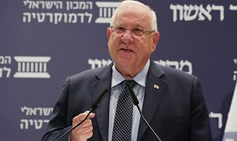
A Democracy in Flux
President Reuven Rivlin, Justice Minister Ayelet Shaked,Leader of the Israeli Labor Party Avi Gabbai and State Prosecutor Shai Nitzan relate to tensions surrounding the prime minister's investigations and the coalition crisis at a special conference held last night with Makor Rishon
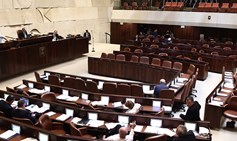
A Storm in a Teacup
Written By: Dr. Chen Friedberg, Dr. Assaf Shapira
Statesmanship or lack thereof has been in the background of a long list of scandals and incidents that have rocked Israeli politics in recent years

Jerusalem Report: Welcome to 21st Century Politics
Written By: Elli Wohlgelernter
Poorly funded and under threat from personalization and social media, political parties are in decline.

Israel Exemplifies Rise of Personalized Politics
Written By: Prof. Gideon Rahat
Donald Trump’s surprise win seems to illustrate the awesome power of the Internet-savvy individual in politics.

New Record! Netanyahu Now Longest Continuously Serving Israeli Prime Minister
Written By: Prof. Ofer Kenig
As of November 22, 2016, Benjamin Netanyahu will have occupied the Prime Minister’s Office for 2,793 days in a row, thereby surpassing David Ben-Gurion for the longest continuous tenure as premier in Israeli history.
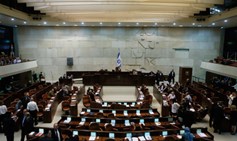
IDI Scholars’ Statement Ahead Of Tomorrow’s Discussion on V-15 Bill
It is important to require transparency, not to limit contributions, and to establish an effective and equal process of oversight

IDI Scholars in Favor of Bill that would Increase Funding for Parties that Hold Primaries to Select their MKs
"The law in Israel has a double-standard and discriminates against parties with democratic systems that enable the wider public to take an active role in politics"

The Cabinet in (com)Motion
May 14 marked the one-year anniversary of the fourth Netanyahu government. According to IDI researcher Dr. Ofer Kenig, "it is safe to say this cabinet has broken a record for internal instability."

Expand Israeli Absentee Voting Rights
Written By: Prof. Ofer Kenig
In this op-ed, which first appeared on the Times of Israel, IDI's Ofer Kenig argues that it is time to cautiously expand the right of absentee voting to more Israelis.

The Israel Democracy Institute to Knesset Ministers: "Support Bill to Shorten Time Allotted For Forming A Government"
Ahead of today's meeting of the Ministerial Committee on Legislation, the Israel Democracy Institute (IDI) called for supporting a bill that will shorten the length of time allotted to form a governmnet after an election.

Criteria for Evaluating the Success of the Israeli Attorney General
Written By: Dr. Guy Lurie, Prof. Mordechai Kremnitzer
In an article in The Marker, Prof. Mordechai Kremnitzer and Dr. Guy Lurie recommend ways of ensuring that the performance of the Israeli Attorney General is evaluated on a regular and systematic basis.

How to Prevent the Recurrence of Early Knesset Elections
Written By: Yohanan Plesner
IDI President Yohanan Plesner recommends a change of approach and some practical steps for changing the reality in which the Israeli public repeatedly goes to the polls to elect a new Knesset before the previous Knesset has finished its term.

Democracy: The Key Election Issue
Written By: Prof. Mordechai Kremnitzer
In an op-ed in Maariv, IDI Vice President Prof. Mordechai Kremnitzer calls for an election campaign that focuses not only on foreign policy and Israel's social gap, but on the nature of Israeli identity and the value of Israeli democracy itself.
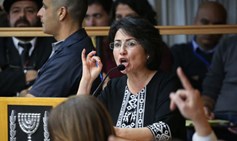
Heart vs. Head: The Case of Hanin Zoabi
Written By: Prof. Mordechai Kremnitzer, Admiral (Res.) Amichay (Ami) Ayalon
Prof. Mordechai Kremnitzer and Admiral Ami Ayalon argue that while the heart has difficulty defending MK Hanin Zoabi's freedom of expression, the head demands that we object to the decision to remove her from parliamentary activity for six months.

A Red Alert for Israeli Democracy
Written By: Yohanan Plesner
In the midst of Operation Protective Edge, IDI President Yohanan Plesner warns of the dangers of racism, incitement, and stifling of free speech and asserts that it is essential to internalize a substantive democratic culture.
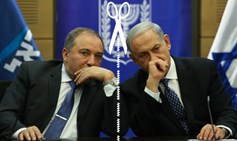
The Yisrael Beiteinu–Likud Split: Background and Consequences
Written By: Dr. Assaf Shapira
Following the announcement of the dissolution of the partnership between Yisrael Beiteinu and the Likud, IDI researcher Assaf Shapira explores the implications of Knesset faction splits.

IDI's Prof. Gideon Rahat Responds to the Proposed "Largest Party" Bill
Head of IDI's Political Reform project responds to reports that Prime Minister Netanyahu is planning to promote legislation that would automatically give the head of the largest Knesset party the right to form the government.
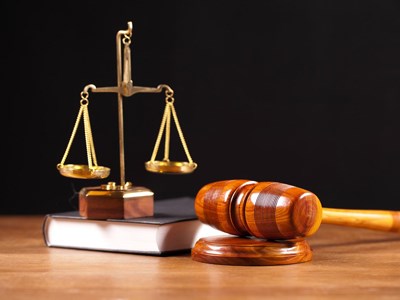
Only a Constitution will Ensure Good Governance in Israel
Written By: Dr. Amir Fuchs
IDI researcher Attorney Amir Fuchs asserts that the only way for Israel to ensure good governance is by adopting a constitution.

Basic Law: Referendum—Changing the Rules of the Game of Israeli Democracy
Written By: Dr. Dana Blander
Dr. Dana Blander draws on the findings of Israeli public opinion polls and explores some of the ramifications of the new Basic Law: Referendum, a law that establishes a system in which every citizen is entitled to participate in historic decisions on withdrawal from territory.

A Professional Assessment of the Governance Bills
Written By: Prof. Gideon Rahat
A professional assessment of proposed changes to Basic Law: The Government and the Election Bill, which was submitted by Prof. Gideon Rahat to MK David Rotem, Chairman of the Knesset Constitution, Law and Justice Committee.
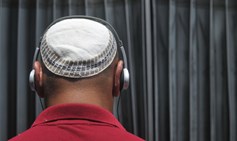
No to the Separation of Religion and State in Israel
Written By: Yair Sheleg
Should the American model of separation of church and state be applied to Israel? In an article in <em>The Jewish Week</em>, IDI's Yair Sheleg argues that Israel needs a unique model.

The High Holidays: A Personal and National Time
Written By: Prof. Yedidia Z. Stern
Prof. Yedidia Z. Stern shares thoughts on the Hebrew calendar, which contributes to Jewish unity and preserves the Jewish people as a single national and cultural unit.

The Governance Bill: Pros and Cons
Written By: Dr. Arye Carmon, Prof. Gideon Rahat, Prof. Ofer Kenig, Reut Itzkovitch Malka
A video in which IDI researchers discuss some of the pros and cons of the Governance Bill being considered by the Knesset.

Between Shamir and Ben-Gurion
Written By: Prof. Ofer Kenig
On November 10, 2012, Prime Minister Benjamin Netanyahu became the Israeli prime minister who has served the second longest cumulative term. Dr. Ofer Kenig explores Netanyahu's placement between record-holder David Ben-Gurion and Yitzhak Shamir.

Do We Really Want Big-Tent Parties?
Written By: Yehoshua Oz
In an op-ed published in The Jerusalem Post, IDI Director of International Communications Yehoshua Oz argues that a central group of larger parties is needed instead of the small parties that have inundated Israeli politics over the last two decades, in order to provide stability and avoid the need for coalitions of many small parties, each with their own special-interest demands.

The Likud-Beiteinu Merger: A Harbinger of Political Change
Written By: Dr. Arye Carmon
In an op-ed originally published in Yedioth Ahronoth, IDI Former President and Founder Dr. Arye Carmon welcomes the merger of the Likud and Yisrael Beiteinu, which he sees as an important milestone in a long, necessary process of repairing Israel's political system.

The Finest or Worst Hour of Israeli Politics?
The nocturnal formation of a new coalition, just as legislation to dissolve the Knesset was about to be passed, left many wondering if this was Israeli politics at its best or at its worst. Dr. Dana Blander explores both sides of this episode, which is likely to redefine what is forbidden, permitted, and worthwhile in Israeli politics.

IDI Experts: New Coalition Presents Historic Opportunities but also Dangers
IDI experts respond to the coalition deal that brought Kadima into the government just as the call for new elections was being finalized.

The Primary System in Israel: A Balance Sheet
Written By: Prof. Ofer Kenig
The frequent criticism of the Israeli primary system by politicians, the media, and academics often creates the impression that the system should be retired and replaced by a new one. In the article below, which was written prior to the Kadima primaries in March 2012, IDI Researcher Dr. Ofer Kenig surveys the arguments against primaries, analyzes the validity of the criticisms, and explores ways of addressing the weak points of the system.

The Israeli Voters Have Spoken
A survey conducted in April 2011 by IDI’s Guttman Center and the Dahaf Institute on behalf of the Save Israeli Democracy NGO reveals that Israeli voters are fed up with political parties and Knesset members, but are willing to support initiatives that will change the situation.

One on One: "As Great a Threat as Iran"
Written By: Dr. Arye Carmon, Ruthie Blum Leibowitz
An interview in which IDI Former President and Founder Dr. Arye Carmon discusses the Institute's achievements, his views on the government and its size, and the connection between his expertise on Nazi Germany and his research on democracy.

Who Presides over the Knesset? On the Role of the Speaker of the Knesset
Written By: Dr. Dana Blander
IDI Researcher Dr. Dana Blander examines the statutory and customary roles of the Speaker of the Knesset and considers whether this is a symbolic job or one that has real influence on the operations of the Knesset. In addition, she compares the powers and functions of the Knesset Speaker with the corresponding roles in Great Britain and Australia.

Lieberman: An Alternative to Israel's "Classic Right"?
Written By: Shmulik Nili
Mr. Shmulik Nili explains how Avigdor Lieberman is gradually being identified as an important national, political alternative. According to Nili, Lieberman has blurred his position on the traditional Right-Left political spectrum by acknowledging the legitimacy of a Palestinian state, addressing the flaws in Israel's political configuration and more.

Who Wins the Israeli Election? That Depends on How You Count the Votes
Written By: Naomi Himeyn Raisch
An analysis of the different patterns of alliances, unions, and mergers between political parties in Israel, which was originally published in Hebrew in IDI's online "Parliament" journal.

Arab Politics in Israel: Where are they Headed?
Written By: Dr. Arik Rudnitzky
The real story of the April 2019 elections took place outside the polling booth. In the Arab sector, the Movement to Boycott the Knesset Elections, a grassroots group based on Arab young adults and university students, working on the social networks with a shoestring budget, conducted an effective campaign with a simple and catchy slogan: “Boycott: The People’s Will.” This message stood in utter contradiction to the motto of the elections in 2015: “The Joint List: The People’s Will.”
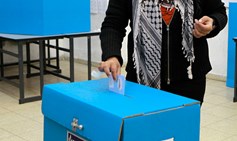
The Voice that Doesn’t Count
Written By: Prof. Yuval Shany
One of the main explanations for the dramatic decline in voter turnout in the Arab Israeli sector in the last elections (49%, versus 63% in the 2015 elections) is the sense that the voice of Israeli Arabs — is a voice that doesn’t count.
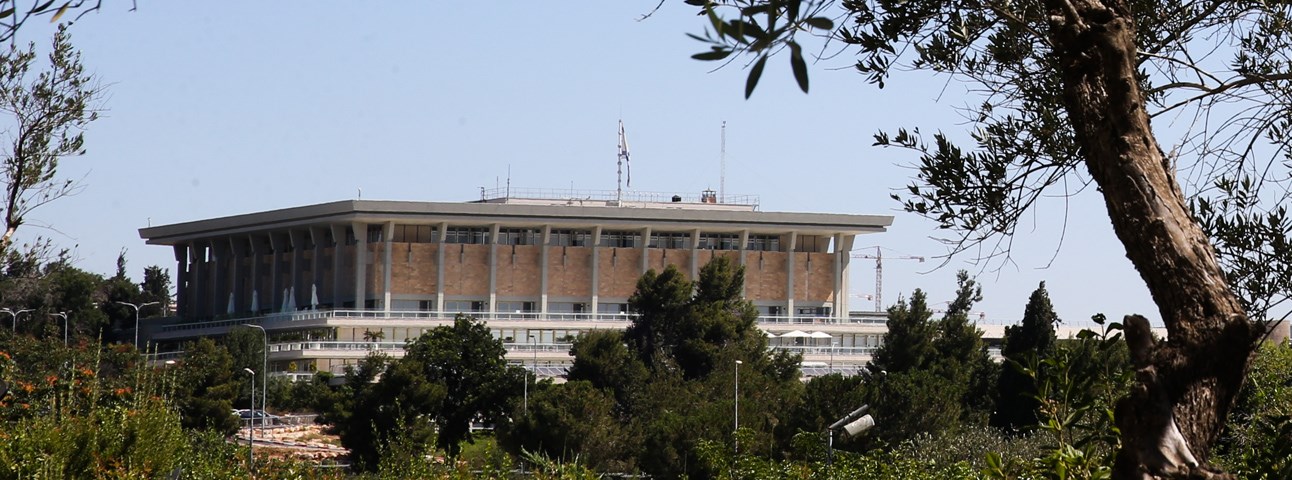
Two Democracies for Two Peoples
Written By: Dr. Shuki Friedman
Israeli society is becoming increasingly polarized with each group holding a very different view of democracy and the State of Israel

How to battle government corruption?
Written By: Prof. Yuval Feldman
In recent years we have seen one Prime Minister, several ministers and numerous mayors charged and convicted on corruption. But most people enter politics for idealistic reasons and with good intentions. So what went wrong?

Behind the Scenes of Israel's Ministerial Committee For Legislation
Written By: Dr. Dana Blander, Dr. Chen Friedberg
There are ways to transform this powerful committee into one that combines politics with professionalism, instead of being one more arena for the settling of political scores.

The Israel Democracy Institute criticizes decision to reduce search committees for public service employees from 5 to 3 and says discussions of allowing additional political appointees ‘will harm the professional ethos of the public service’
IDI President Yohanan Plesner said of this latest development: “While one hand in the government is taking significant steps to diminish regulation and improve human resources in the public service, the other hand is harming these efforts.




